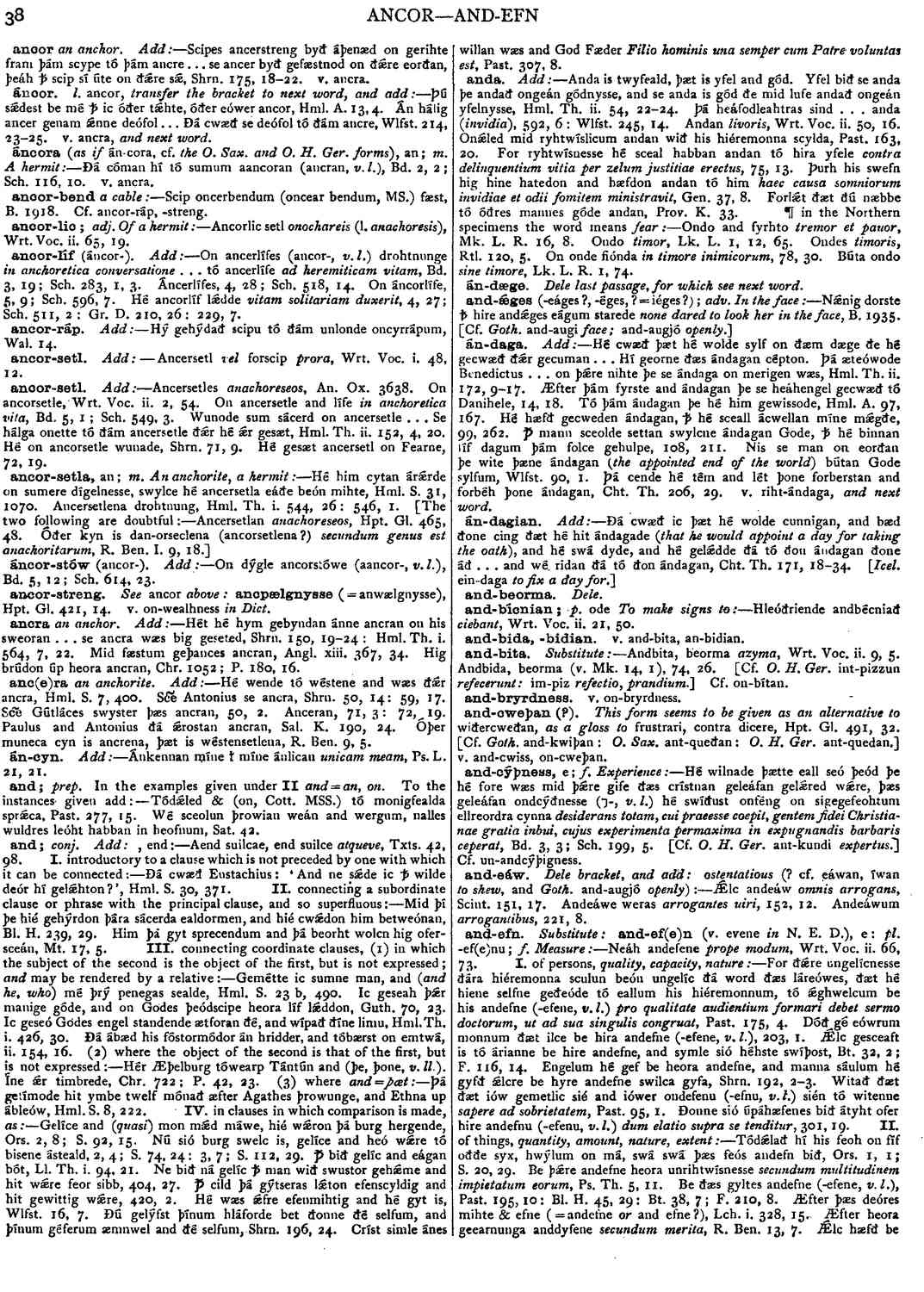án-daga
-
Hé cwæð þæt hé wolde sylf on ðæm dæge ðe hé gecwæð ðǽr gecuman . . . Hí georne ðæs ándagan cépton. Þá æteówode Benedictus . . . on þǽre nihte þe se ándaga on merigen wæs,
- Hml. Th. ii. 172, 9-17.
-
Æfter þám fyrste and ándagan þe se heáhengel gecwæð tó Danihele,
- 14, 18.
-
Tó þám ándagan þe hé him gewissode,
- Hml. A. 97, 167.
-
Hé hæfð gecweden ándagan, ꝥ hé sceall ácwellan míne mǽgðe,
- 99, 262.
-
Ꝥ mann sceolde settan swylcne ándagan Gode, ꝥ hé binnan líf dagum þám folce gehulpe,
- 108, 211.
-
Nis se man on eorðan þe wite þæne ándagan (
the appointed end of the world
) bútan Gode sylfum,- Wlfst. 90, 1.
-
Þá cende hé tém and lét þone forberstan and forbéh þone ándagan,
- Cht. Th. 206, 29. v. riht-ándaga, and next word.
Bosworth, Joseph. “án-daga.” In An Anglo-Saxon Dictionary Online, edited by Thomas Northcote Toller, Christ Sean, and Ondřej Tichy. Prague: Faculty of Arts, Charles University, 2014. https://bosworthtoller.com/38591.
Checked: 0